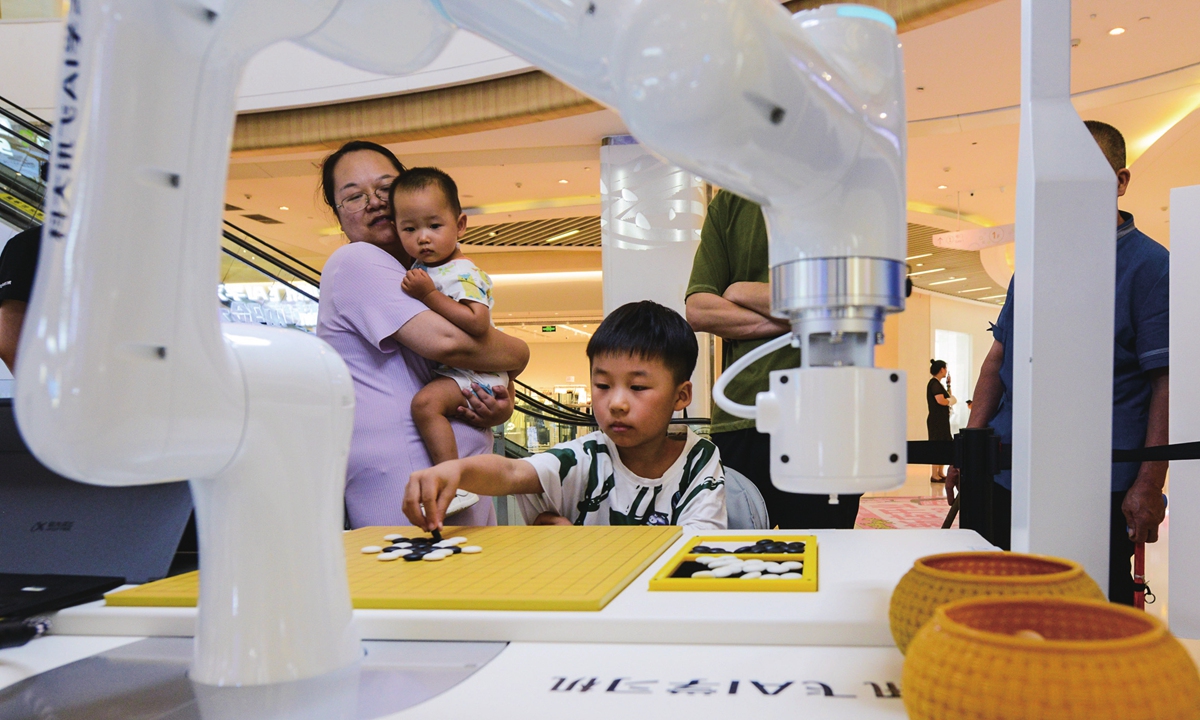
A child plays backgammon with a robot at a shopping center in Zhengzhou, Central China's Henan Province on July 31, 2023. Many provinces across the country have integrated artificial intelligence (AI) into the education of young students, an effort to nurture up-to-date AI talent. Photo: VCG
Chinese artificial intelligence (AI) firms are ramping up efforts to launch large language models amid global generative AI rush. Zhipu AI, a company founded by Tsinghua alumni in 2019, recently launched a self-developed third-generation pedestal large model ChatGLM3, after the previous two dialogue models.
The company said its semantic and logical capabilities of ChatGLM3 have been greatly enhanced, and it has implemented iterative upgrades of several new functions, including the semantic function of image recognition.
The code enhancement module Code Interpreter can generate and execute code according to user needs, automatically completing complex tasks such as data analysis and file processing, the company said.
With the help of self-developed AgentTuning technology, it can improve intelligent planning and execution by 1,000 percent compared to the previous generation ChatGLM2, and enables domestic large models to natively support tool calling, code execution, games and database operations.
Zhang Peng, CEO of Zhipu AI said that its products have supported more than 10 domestic hardware ecosystems, including Ascend and Sunway Supercomputer.
The company will continue to optimize performance through joint innovation with domestic chip companies, helping domestic native large models and domestic chips to compete with global players.
Reuters reported in August that Chinese AI firms Baichuan Intelligent Technology and Zhipu AI opened their AI large language models to the public after receiving approval from Chinese authorities.
It comes after Baidu said it had received a regulatory approval to launch its artificial intelligence Ernie Bot to the general public starting from August 31.
On September 7, China's tech giant Tencent debuted its AI large language model, joining other Chinese tech firms which have rolled out their own models amid the global rush toward generative AI, ignited by the popular ChatGPT developed by US firm OpenAI earlier this year.
China's temporary rules for managing generative AI services took effect in August, a move that is believed to promote the sound development of sector while safeguarding national security and the public interest.
Global Times


